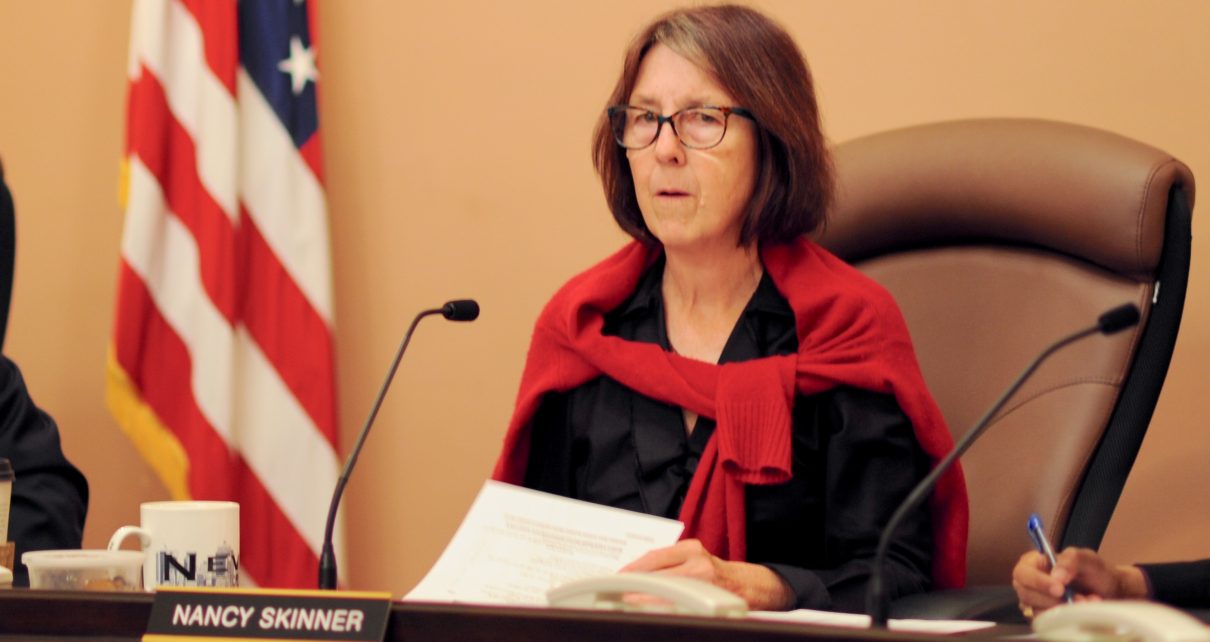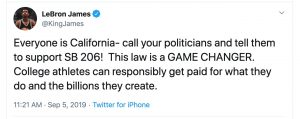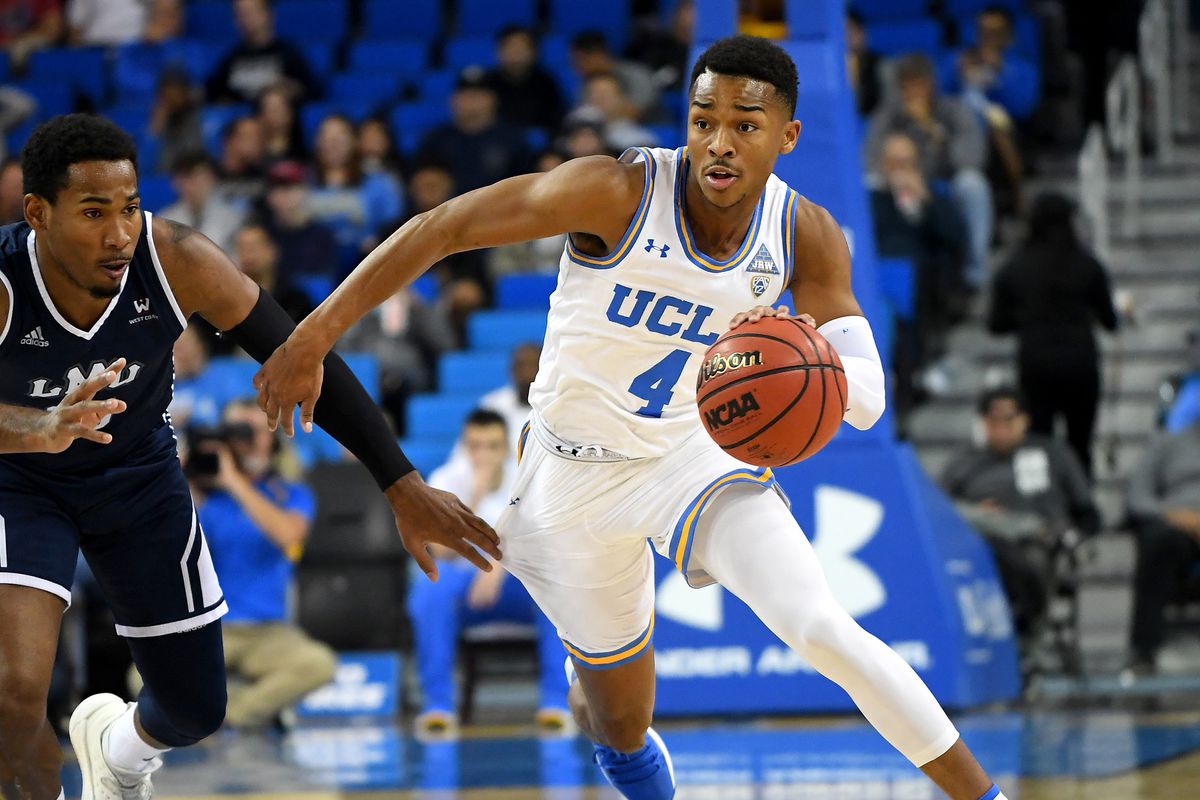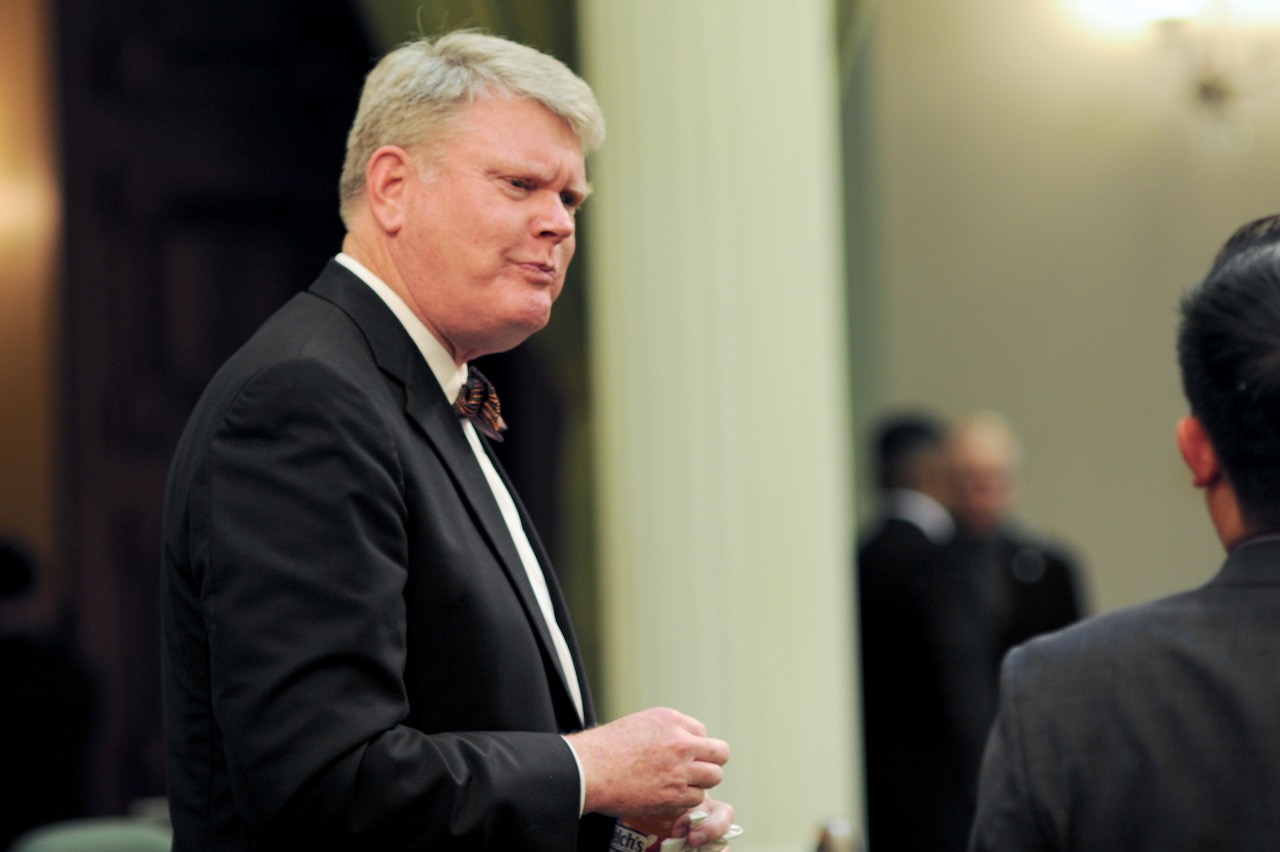
Senator Nancy Skinner. (Photo: Kevin Sanders for California Globe)
Student Athlete Compensation Bill Is Up For A Crucial Vote
California would be the first state in the country to pay University student athletes if SB 206 is passed.
By Evan Symon, September 6, 2019 6:30 am
Senate Bill 206, which would compensate student-athletes for their name, image, and likeness being used by California Universities, is up for a critical vote in the California State Assembly after a 31 to 4 passage in the Senate.
SB 206, also known as the Fair Pay to Play Act, was introduced by Senators Nancy Skinner (D-Berkeley) and Steven Bradford (D-Los Angeles). Under the bill, student-athletes would also be granted sports agents for their likeness being used. Student-athlete scholarships would also be secure, as the bill prohibits a college from taking away a scholarship if the athlete receives compensation, and would not affect their eligibility.
Additionally, only non-community college California universities that make more than $10 million dollars from media revenue annually will be affected, essentially narrowing it down to schools with large athletic programs.
Those supporting the bill say that for decades student-athletes have not earned anything but a scholarship that doesn’t pay non-school related bills, and that a majority of student-athletes live near the poverty level. Their main argument is that they should be paid a reasonable amount, given the billions of dollars the NCAA receives each year from the usage of their name and likeness.
“The California Senate has spoken loud and clear: Student-athletes should enjoy the same right as all other students to earn income from their talent,” announced Senator Skinner after the Senate vote. “SB 206 gives our college athletes the same financial opportunity afforded to Olympic athletes.”
Many athletes have also voiced their support. Former UCLA basketball player Ed O’Bannon and former Stanford Volleyball player Hayley Hodson are among the hundreds of athletes voicing their support. On Thursday, Los Angeles Lakers star LeBron James also voiced his support for the measure.

Meanwhile, university athletic associations and the NCAA oppose the bill. NCAA president Mark Emmert said that such a compensation plan would cause interstate game equalities, unfair advantages for recruiting due to only California student-athletes being allowed to be paid, and that the passage of the bill could result in the ban of California teams from participating in NCAA tournaments.
Athletic directors from numerous universities across California have also raised concerns how a bill could hurt student-athletes, including having a loss of interest in academics.
Assemblyman Jose Medina (D-Riverside) responded to Emmert’s remarks, saying, “I don’t take too fondly to threats to the state of California, regardless of where they come from.”
In a recent interview for NPR, College Athletics Players Association founder Ramogi Huma tried to equate the student-athlete issue with how universities treat student researchers, as research projects also make large amounts of money largely with the talents of students.
“David Drummond, who’s a vice president of Google – he used to play football at Santa Clara University,” said Huma. “And in a keynote address at a symposium, he talked about the fact that Google was developed at Stanford, in part by student researchers. Stanford paid those student researchers very well. So it’s not some kind of a rule or moral high ground that says the university has to monopolize every bit of talent whether or not the student is advancing gains using the university’s computers or not.”
With neither student-athlete supporters or the NCAA backing down, it will all come down to a vote by next Friday. If passed, the bill would not come into effect until 2023.
- San Diego Country Supervisor Jim Desmond Calls San Diego New Epicenter Of Illegal Crossings By Migrants - April 27, 2024
- Oracle Moving Headquarters Out Of Austin Only 4 Years After Moving Out Of California - April 26, 2024
- Congressman Adam Schiff Robbed of his Luggage in San Francisco Car Break In - April 26, 2024




